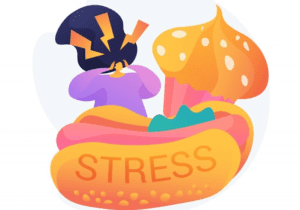Are Freudian Slips Accidents or Unconscious Desires?
This article has been researched and written by Sara Caroppo. AI has not been used in producing this article.
Suddenly, there is silence, eyebrows are raised, and you’re left mumbling, while attempting to explain how that name just magically appeared in your mouth. Yeah, that’s a Freudian slip. And no, you can’t blame autocorrect this time!
Sigmund Freud, the father of psychoanalysis, believed that these little verbal hiccups are more than just accidents. They are windows into our unconscious mind, and those windows can reveal some uncomfortable yet powerful truths.
Most people think a Freudian slip is, in fact, just about saying one thing when you mean your mother, I mean, another. But in therapy, they can go beyond words and sometimes, they take the form of odd sounds, sudden vocalisations, or unexpected bursts of laughter that escape before the brain can apply its usual filter.
Ever had a conversation with someone telling you how upset they were while having a big smile on their face? These mismatches are unconscious slips too, and they reveal more than any carefully curated Instagram caption ever could. One time, a 10-year-old boy I worked with a few years ago insisted he was “super happy” at school but would unconsciously sing the horror movies theme song whenever we talked by his maths teacher. Or another teenage girl who repeatedly said her stepdad was “ok” but would keep scrunching up her nose while saying it, as if her subconscious just couldn’t let that lie slide. But why do these slips matter?

As a child psychologist, I know children and adolescents rarely express their emotions in a clear and concise way. Their unconscious minds do a lot of the talking for them. And sometimes, the most revealing moments aren’t in what they say, but in the pauses, the stutters, the sighs, and even the weird noises that slip out when they think no one is paying attention. In Dubai’s fast-paced, high-achieving environment, where emotions often take a backseat to success, these moments become even more valuable. A young person might insist they are handling school stress “perfectly fine” while repeatedly mispronouncing the word “exam” as “eczema.” A child might loudly say “I love living here”, but unconsciously draw pictures of airplanes heading back to their home country. These aren’t just coincidences; they are tiny leaks from the emotional reservoir.
Now that we have this knowledge, however, it is important that we don’t overanalyse every slip. Sometimes a latte really is just a latte, and not a symbol of your unresolved dairy-related trauma. But if you notice patterns, especially in young people, it is worth exploring what their subconscious might be trying to say. It is also critical that we embrace these moments with curiosity rather than embarrassment. The next time your child insists they love school but simultaneously lets out a noise that sounds like a deflating balloon, maybe dig a little deeper. And if you accidentally call your boss “dad” in a meeting… well, maybe take a day off.
Because whether we are in therapy, cooking, or just trying to survive Hessa Street traffic, our unconscious minds are always speaking. The real question is, are we listening?
Questions a Child Psychologist Might Ask
When preparing for your child’s first appointment with a psychologist, it’s natural to feel curious—or even a little anxious—about what …
55 Love Questions for Couples to Deepen Your Relationship
In any relationship, communication is key. Whether you’re just starting out or have been together for years, asking meaningful
Stress vs. Anxiety vs. Burnout: How to Recognize the Difference
In today’s fast-paced world, understanding the differences between stress, anxiety, and burnout is crucial for …
Relocation Depression: Definition and Ways to Cope
Relocation depression, also known as moving depression, is a form of situational depression that arises from the stress …
How to Help Your Child with Anxiety Through Divorce
Divorce is a significant change that affects every member of a family. For children, the uncertainty and adjustments …
Depression vs Sadness: Understanding the Difference
While often used interchangeably, the terms “sadness” and “depression” represent distinct emotional states, each with …
5 Simple Mental Health Practices for Your Everyday Life: Nurturing Your Body & Mind
In today’s fast-paced world, it’s becoming increasingly evident that we need to place our mental health at the forefront
Ways to Reduce Anxiety in 2024
As we say farewell to 2022 and usher in the New Year, we look towards the future. With New Year’s resolutions on the docket, many of us are striving to achieve a calm life …
Navigating Compassion Fatigue in the Digital Age: A Call to Prioritize Mental Well-Being
Amid the constant stream of information and images that flood our screens, the toll on our mental well-being can be …
The Link Between Anxiety and Overeating
All of us have encountered moments of stress and unease throughout our lives. These feelings of anxiety not only bring…











